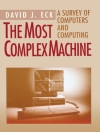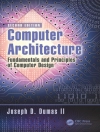The explosive growth of e-commerce and online environments has made the issue of information search and selection increasingly serious; users are overloaded by options to consider and they may not have the time or knowledge to personally evaluate these options. Recommender systems have proven to be a valuable way for online users to cope with the information overload and have become one of the most powerful and popular tools in electronic commerce. Correspondingly, various techniques for recommendation generation have been proposed. During the last decade, many of them have also been successfully deployed in commercial environments.
Recommender Systems Handbook, an edited volume, is a multi-disciplinary effort that involves world-wide experts from diverse fields, such as artificial intelligence, human computer interaction, information technology, data mining, statistics, adaptive user interfaces, decision support systems, marketing, and consumer behavior. Theoreticiansand practitioners from these fields continually seek techniques for more efficient, cost-effective and accurate recommender systems. This handbook aims to impose a degree of order on this diversity, by presenting a coherent and unified repository of recommender systems’ major concepts, theories, methodologies, trends, challenges and applications. Extensive artificial applications, a variety of real-world applications, and detailed case studies are included.
Recommender Systems Handbook illustrates how this technology can support the user in decision-making, planning and purchasing processes. It works for well known corporations such as Amazon, Google, Microsoft and AT&T. This handbook is suitable for researchers and advanced-level students in computer science as a reference.
Inhoudsopgave
Introduction to Recommender Systems Handbook.- Part I Basic Techniques.- Data Mining Methods for Recommender Systems.- Content-based Recommender Systems: State of the Art and Trends.- A Comprehensive Survey of Neighborhood-based Recommendation Methods.- Advances in Collaborative Filtering.- Developing Constraint-based Recommenders.- Context-Aware Recommender Systems.- Part II Applications and Evaluation of RSs.- Evaluating Recommendation Systems.- A Recommender System for an IPTV Service Provider: a Real Large-Scale Production Environment.- How to Get the Recommender Out of the Lab?.- Matching Recommendation Technologies and Domains.- Recommender Systems in Technology Enhanced Learning.- Part III Interacting with Recommender Systems.- On the Evolution of Critiquing Recommenders.- Creating More Credible and Persuasive Recommender Systems: The Influence of Source Characteristics on Recommender System Evaluations.- Designing and Evaluating Explanations for Recommender Systems.- Usability Guidelines for Product Recommenders Based on Example Critiquing Research.- Map Based Visualization of Product Catalogs.- Part IV Recommender Systems and Communities.- Communities, Collaboration, and Recommender Systems in Personalized Web Search.- Social Tagging Recommender Systems.- Trust and Recommendations.- Group Recommender Systems: Combining Individual Models.- Aggregation of Preferences in Recommender Systems.- Active Learning in Recommender Systems.- Multi-Criteria Recommender Systems.- Robust Collaborative Recommendation.- Index.
Over de auteur
Francesco Ricci is associate professor at the faculty of computer science, Free University of Bozen-Bolzano, Italy. His current research interests include recommender systems, intelligent interfaces, mobile systems, machine learning, case-based reasoning, and the applications of ICT to Tourism. He is in the editorial board of Journal of Information Technology and Tourism and he is member of ACM and IEEE. F. Ricci is also member of the steering committee of the ACM Conference on Recommender Systems.
Lior Rokach is assistant professor at the Department of Information System Engineering at Ben-Gurion University. He is a recognized expert in intelligent information systems and has held several leading positions in this field. His main areas of interest are Data Mining, Pattern Recognition, and Recommender Systems. Dr. Rokach is the author of over 70 refereed papers in leading journals, conference proceedings and book chapters. In addition he has authored six books and edited threeothers books.
Bracha Shapira is assistant professor at the Department of Information Systems Engineering at Ben-Gurion University, Beer-Sheva, Israel. Her current research interests include recommender systems, information retrieval, personalization, user modelling, and social networks. She leads research projects at the Deutsche telekom Laboratories at Ben-Gurion University and is a member of ACM and IEEE.
Paul Kantor is Professor of Information Science in the School of Communication and Information at Rutgers University, with additional appointments in the Faculty of Computer Science and the RUTCOR Center for Operations Research. His interests are in collaborative information finding, text classification, and text or imaging indexing and retrieval. He is a Fellow of the American Association for the Advancement of Science, and a member of the ACM, IEEE and ASIST, and his research is supported by the US NSF and Department of Homeland Security, and other agencies.












